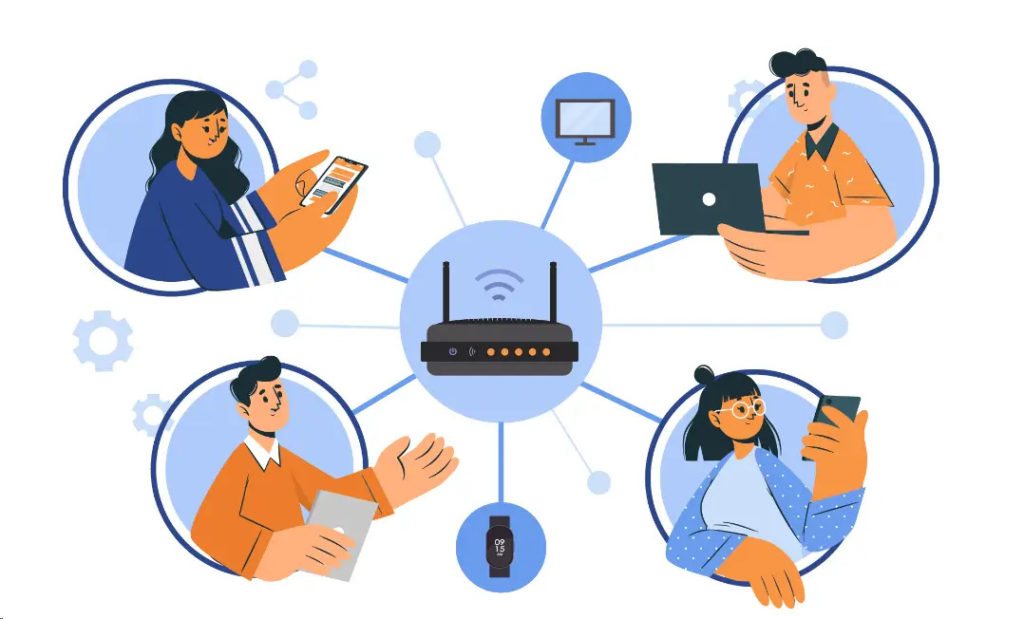IP stands for Internet Protocol. An IP address is a unique string of numbers separated by periods (IPv4) or colons (IPv6) that identifies each computer using the Internet Protocol to communicate over a network.
Almost everything we do online in our modern world starts with connecting to the internet, whether browsing websites, sending emails, or streaming videos. But have you ever wondered how devices on the internet can communicate with each other? The key to this communication is something called an IP address.
Types of IP Addresses
There are two types of IP addresses that you might come across:
- IPv4: This is the most common form of IP addresses. It consists of four numbers separated by dots. Each number can range from 0 to 255. For example, 192.168.1.1 could be an IP address.
- IPv6: Due to the limited number of addresses available in IPv4, IPv6 was introduced. IPv6 addresses are longer and consist of hexadecimal characters separated by colons, for example, 3ffe:1900:4545:3:200:f8ff:fe21:67cf.
How Do IP Addresses Work?
Think of an IP address like your home address, which uniquely identifies where you live and allows you to receive mail. Similarly, in the digital world, an IP address identifies your device on the internet or a local network, ensuring the requested data finds its way to you and not someone else.
Dynamic and Static IP Addresses
- Dynamic IP Addresses: These are temporary and are assigned to a device each time it connects to the internet. They are commonly used because they are cost-effective and allow a limited number of IP addresses to be shared among many users.
- Static IP Addresses are permanent IP addresses typically used by businesses that need the same IP address constantly for hosting websites and other services on the Internet.
Why Are IP Addresses Important?
- Communication: IP addresses allow different devices on the internet to find and communicate with each other. Without this system, sending or retrieving information on the internet would be nearly impossible.
- Networking: IP addresses help create a structured network that allows for reliable, orderly communication, which is critical for everything from your home Wi-Fi to the global internet.
- Security: IP addresses are crucial for security purposes. They help identify the origin of internet traffic and can be used to block harmful communications.
- Location Services: While an IP address doesn’t exactly pinpoint your physical location, it does help provide a general location. This is how regional restrictions work on some websites and why you might be shown ads relevant to your location.
IP Addresses and Privacy
Your IP address can reveal where you are and what internet service provider you are using. This is why it’s important information when talking about online privacy. If someone knows your IP address, they don’t know who you are but know where your internet traffic is coming from.
How Can You Protect Your IP Address?
To keep your IP address more private, you might consider:
- Using a VPN (Virtual Private Network): A VPN hides your real IP address and makes it appear that your internet activities are coming from another location. This can help protect your privacy and is particularly useful when using public Wi-Fi.
- Using a Proxy Server: Like a VPN, a proxy server acts as a middleman between your device and the internet. It hides your real IP address and can offer different functionality, security, and privacy depending on your needs.
- Adjusting Privacy Settings: Be aware of privacy settings on your devices and applications. You can adjust settings to limit how much information you share online.
An IP address is more than just a number assigned to your device. It plays a crucial role in the functionality of the Internet and helps ensure that our online experiences run smoothly. Understanding what an IP address is, how it works, and how to protect it can help you navigate the online world more safely and effectively. So, the next time you go online, remember there’s a unique address, ensuring your internet journey is possible.
